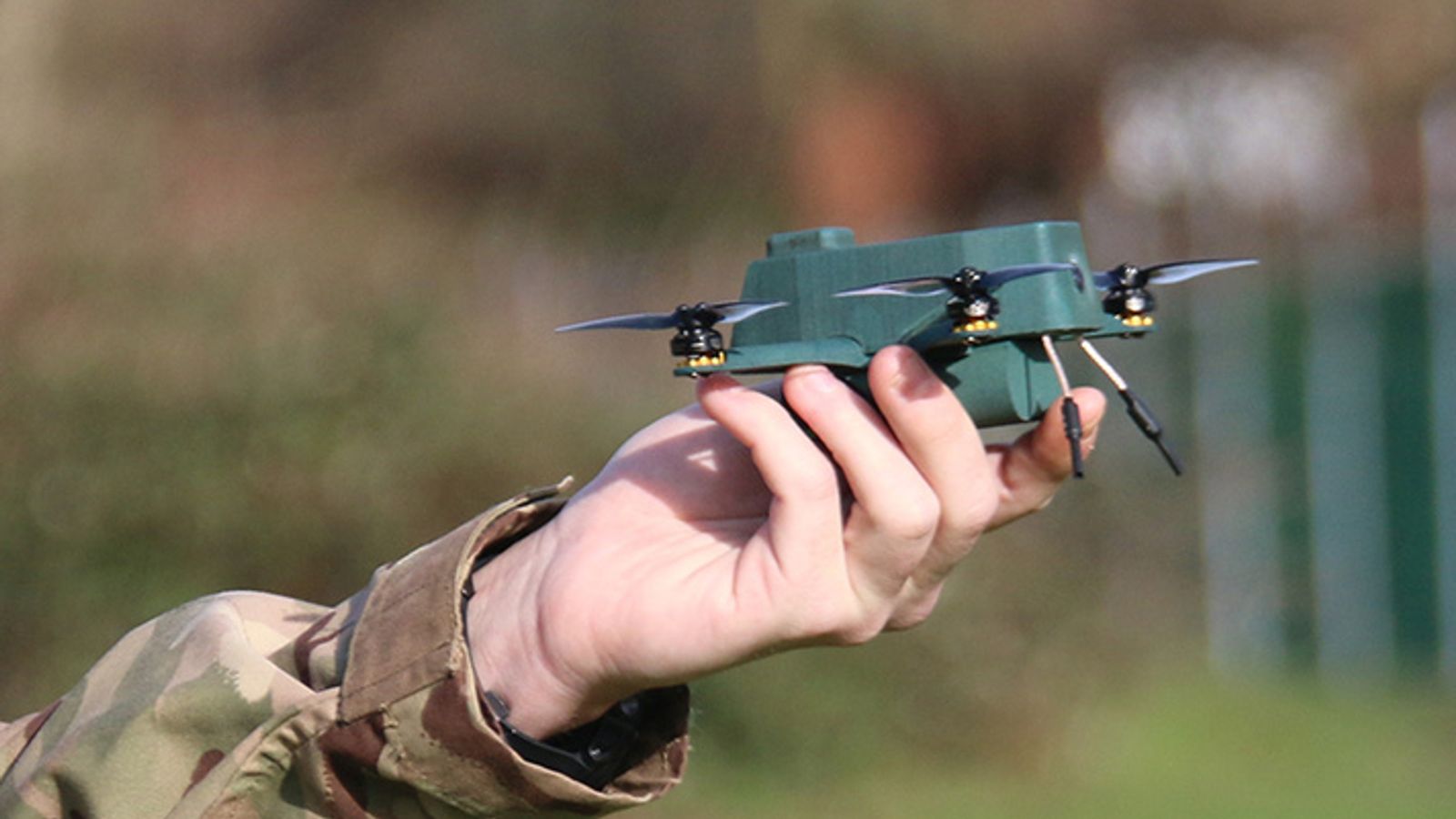The British Army has received its first new ‘Bug’ nano drones – machines that can fit in the palm of a soldier’s hand and be flown in heavy winds for reconnaissance up to 2km (1.2 miles) away.
The miniature quadcopters weigh 196g (6.9 ounces) – about the same as the iPhone 12 Pro Max – and have a 40-minute battery life covering flying, recording, and beaming video back to the troops.
The device was the only model which was able to cope with “uncompromising weather” during a recent Army Warfighting Experiment event hosted by the Ministry of Defence.

“In even the toughest weather, the Bug can deliver vital tactical intelligence on what’s around the corner or over the next hill, working autonomously to give troops a visual update,” said James Gerard, principal technologist at BAE Systems’ Applied Intelligence.
Due to its size, the device has a “stealthy low visual profile”, according to BAE Systems, which developed it in collaboration with UAVTEK, and can fly even in strong winds of more than 50mph
The first 30 units have now been delivered to the British Army, which put the drones to the test in a series of trials designed to emulate the challenges they might face in a combat situation.
The small delivery comes amid a period of great uncertainty for the future of the British armed forces and for world stability.
Earlier this year, while seeking a multi-year settlement for the British military from the Treasury, the head of the UK armed forces warned Sky News that there is a risk of a new world war if current, smaller conflicts escalate out of control, drawing in more countries and weapons.
Boris Johnson subsequently announced what was billed as the biggest investment in defence since the Cold War, delivering £16.5bn in extra funding to the military over the next four years.
The investment came even as other government departments received just single-year budgets due to the COVID-19 pandemic.
But the prime minister also confirmed a delay for the government’s long-awaited Integrated Review of the armed forces until the New Year.
The review will set out the UK’s global priorities, and will include an assessment of the security risks facing the nation and how the British forces are adapting to meet them.

Delivering a speech on defence reform earlier this month, the secretary of state Ben Wallace warned “we are no longer leading and innovating enough”, citing a range of threats from missile technology through to adversary activities taking place below the threshold of war.
“We are in danger of being prepared only for the big fight that may never come, whilst our adversaries might choose to outflank it even if it does,” the defence secretary said.
“We have a tendency in the West to divide conflict between war fighting (the violent activity of a ‘proper’ so-called shooting war) and the sub-threshold (everything before the shooting starts), when in fact today’s conflict is carried out through typically non-violent but undoubtedly hostile activities.”
He added: “Some tough choices will still have to be made [despite the settlement and extra funding]. But those choices will allow us to invest in new domains, new equipment and new ways of working.”
